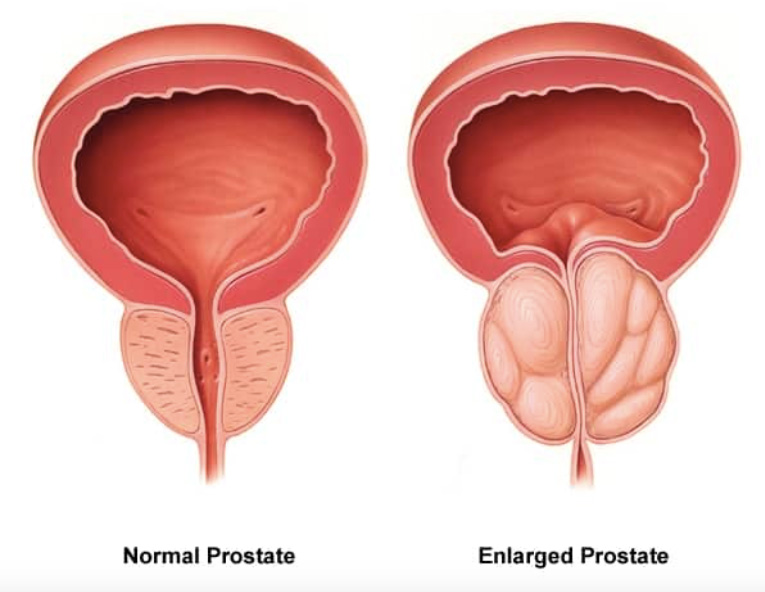Prostrate Enlargement
Benign prostatic hyperplasia (BPH) is a condition in which the prostate, a walnut-sized body part made of glandular and muscular tissue, grows in size. The prostate surrounds part of the urethra, which is the tube that carries urine and sperm out of the body. The prostate is located directly beneath the bladder and in front of the rectum. The urethra passes through the prostate, so if the prostate becomes enlarged, it can keep urine or semen from passing through the urethra.

Benign Prostrate Hypertrophy
Men with the following factors are more likely to develop benign prostatic hyperplasia:
- Age 40 years and older
- Family history of benign prostatic hyperplasia
- Medical conditions such as obesity, heart and circulatory disease, and type 2 diabetes
- Lack of physical exercise
- Erectile dysfunction
Causes
Another theory focuses on dihydrotestosterone (DHT), a male hormone that plays a role in prostate development and growth. Some research has indicated that even with a drop in blood testosterone levels, older men continue to produce and accumulate high levels of DHT in the prostate. This accumulation of DHT may encourage prostate cells to continue to grow.
Symptoms
- Urinary frequency—urination eight or more times a day
- Urinary urgency—the inability to delay urination
- Trouble starting a urine stream
- A weak or an interrupted urine stream
- Dribbling at the end of urination
- Nocturia—frequent urination during periods of sleep
- Urinary retention
- Urinary incontinence—the accidental loss of urine
- Pain after ejaculation or during urination
- Urine that has an unusual color or smell
Treatment & Homoeopathic Approach
BEP can be effectively treated by homoeopathic medicines . Homoeopathic medicines not only help in giving symptomatic relief to the most painful & distressing complaints but also help in reducing the enlarged size of the prostrate . Though severe cases may need surgical intervention .
